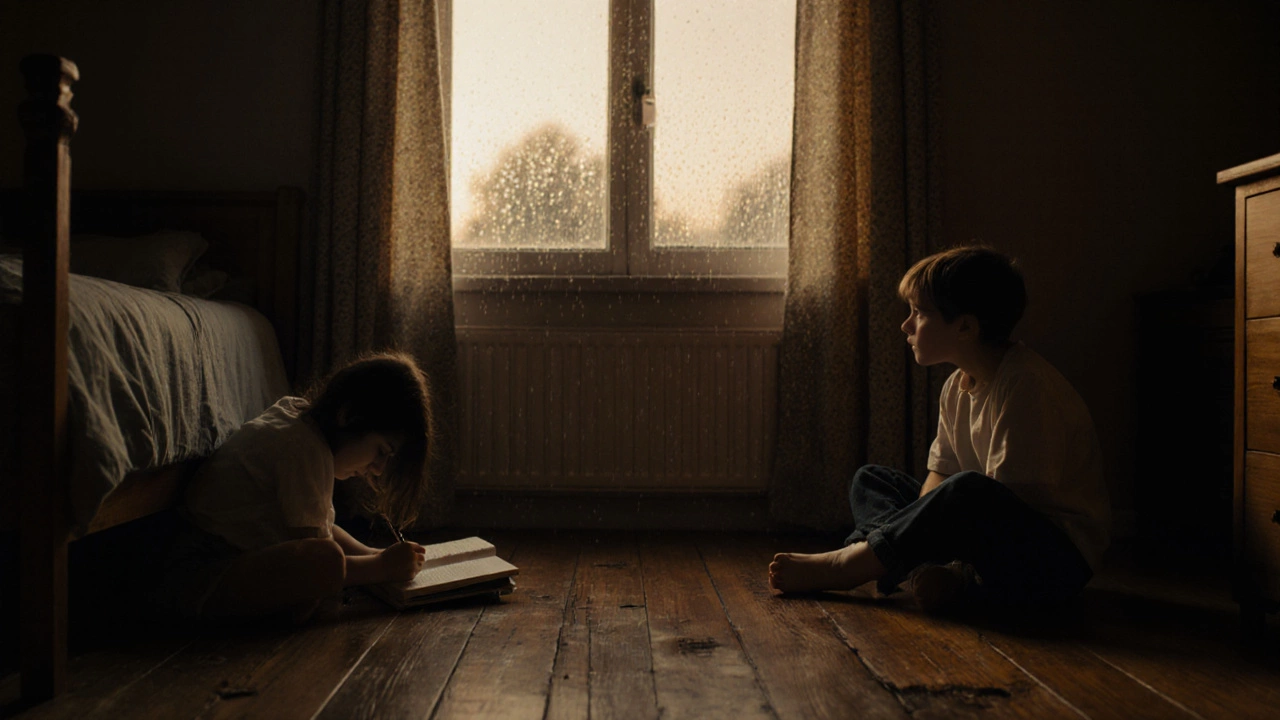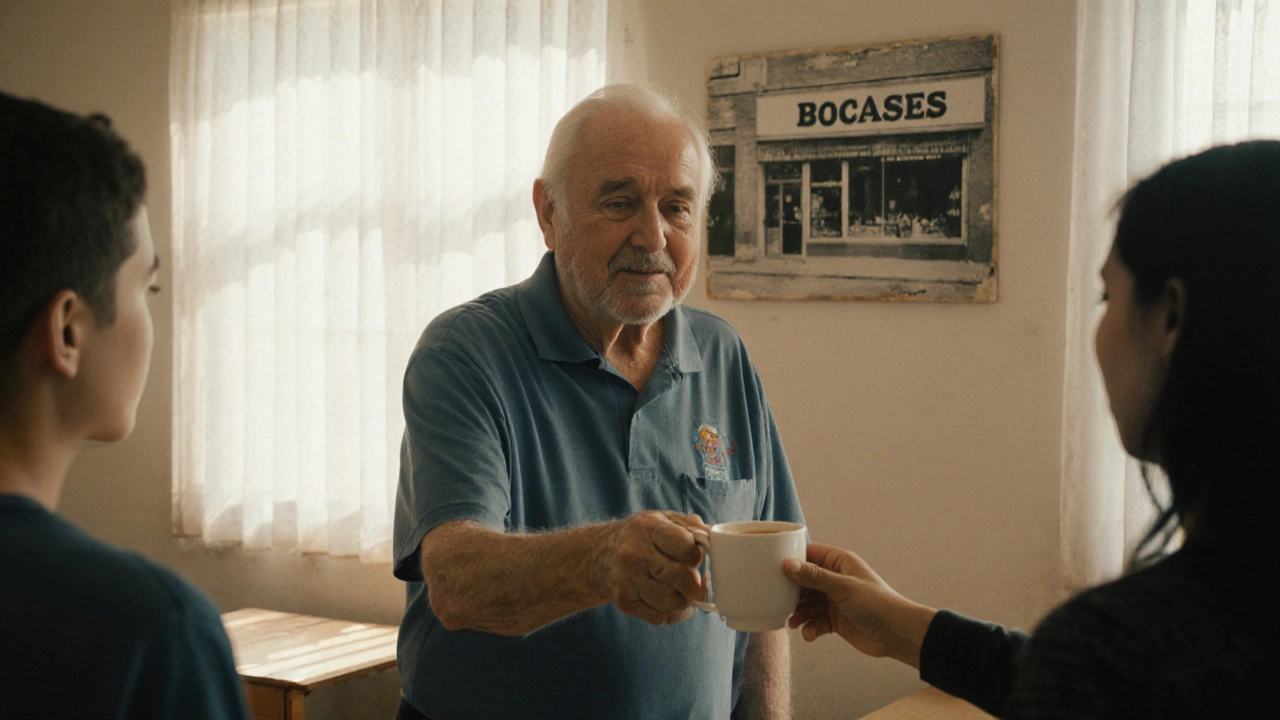What Builds Someone's Personality? Real Factors That Shape Who You Are
 Nov, 20 2025
Nov, 20 2025
Personality Growth Calculator
Based on scientific research: Personality isn't fixed. Your daily choices build habits that shape who you become. Estimate how small changes can transform your personality over time.
Select Your Personality Trait
Choose the trait you want to develop. This calculator uses research showing that consistent action builds personality.
Your Current Habit
How often do you currently practice this trait?
Your Goal
How often do you want to practice this trait?
Think about the people you admire most. What makes them who they are? Is it their confidence? Their calm under pressure? Their sense of humor? You might assume it’s genetics or upbringing-but the truth is far more layered. Personality isn’t something you’re born with and stuck with. It’s built. Every day. Through choices, experiences, and repeated actions. If you’ve ever wondered what actually shapes who you become, it’s not one big event. It’s the small, quiet things you do over years.
Early experiences leave fingerprints, not blueprints
Your childhood doesn’t dictate your personality-it imprints it. A kid raised in a home where emotions were ignored might grow up avoiding vulnerability. Another raised in chaos might become hyper-organized as an adult. But here’s the catch: these aren’t fixed traits. They’re coping strategies that stuck. Studies from the University of California, Berkeley show that people who grew up with emotionally responsive caregivers tend to develop higher emotional regulation by age 25. That doesn’t mean others can’t learn it. It just means they have to work harder at it.
That’s why two siblings raised in the same house can turn out so differently. One becomes anxious and cautious; the other, bold and impulsive. Not because of genes alone, but because of how each interpreted their environment. One saw rules as safety. The other saw them as limits. The same events, different meanings.
Choices build habits. Habits build character.
Personality isn’t a static label like "introvert" or "optimist." It’s the sum of your repeated choices. Every time you choose to speak up when you’re scared, you strengthen courage. Every time you avoid conflict to keep peace, you reinforce people-pleasing. You don’t become patient by wishing for it. You become patient by choosing to wait-again and again-without exploding.
Neuroscience confirms this. The brain rewires itself based on repetition. Every time you respond to stress with anger, you strengthen the neural pathways for anger. Every time you pause, breathe, and respond calmly, you build a new, stronger path. Your personality isn’t who you are. It’s what you keep doing.
Relationships act as mirrors and molds
People don’t just influence you-they reflect you back to yourself. Think about the last time someone called you out on a pattern you didn’t see. "You always interrupt," they said. And suddenly, you heard it. That’s not criticism. That’s feedback shaping your self-awareness.
Research from Harvard’s 85-year-long Study of Adult Development found that the quality of relationships at age 50 was the strongest predictor of life satisfaction at 80. Not wealth. Not fame. Not health. Relationships. Why? Because the people around you challenge your assumptions, validate your strengths, and expose your blind spots. A toxic relationship can erode self-worth. A supportive one can rebuild it.
You don’t become more confident because you read a book. You become confident because someone believed in you before you believed in yourself.

Challenges don’t break you-they rebuild you
Not every hardship makes you stronger. But the ones that do? They force you to adapt. Losing a job. A breakup. A health scare. These aren’t just setbacks. They’re identity tests. Who are you when the mask comes off?
People who recover from trauma often report lasting changes: deeper empathy, clearer priorities, less fear of failure. That’s not magic. It’s adaptation. When you’re forced to rebuild from scratch, you start making choices based on values, not habits. You stop doing things because "that’s what I’ve always done" and start doing them because "this matters."
One man I know lost his business in 2020. He spent six months unemployed, depressed, and lost. Then he started volunteering at a community center. He didn’t set out to become more compassionate. He just showed up. Over time, he noticed he cared more about people than profit. That shift didn’t come from therapy. It came from action.
Culture and environment shape your unspoken rules
What’s considered "strong" or "weak" isn’t universal. In some cultures, silence is wisdom. In others, it’s avoidance. In some, emotional expression is healthy. In others, it’s a liability. You absorb these rules without realizing it.
Move from London to Tokyo, and you’ll quickly learn not to raise your voice in public. Move from rural Wales to New York, and you’ll learn to speak up fast or get stepped on. These aren’t personality changes-they’re adaptations. But over time, adaptations become identity. You start believing that being quiet makes you thoughtful, or being loud makes you confident. The environment doesn’t change you. It gives you a script-and you start acting it out.

Reading, learning, and reflection turn awareness into growth
Knowledge alone doesn’t change personality. But when you combine it with reflection, it becomes powerful. Reading a book about emotional intelligence won’t make you kinder. But reading it, then journaling about a time you failed to listen-that’s when change happens.
People who keep journals for even six months show measurable increases in self-awareness and emotional control. Why? Because writing forces you to slow down. You can’t just think, "I was rude yesterday." You have to ask: Why? What did I fear? What could I have done differently?
That’s the difference between passive learning and active transformation. You don’t become more thoughtful by reading about thoughtfulness. You become thoughtful by noticing your own thoughts-and choosing to change them.
Time doesn’t heal. Action does.
People say, "I’ve changed since I was 20." But they rarely say how. The truth? Change doesn’t happen because time passed. It happens because you did something differently. You started therapy. You quit a job. You moved cities. You stopped texting your ex. You began meditating. You said no to something that drained you.
There’s no secret formula. No hidden gene. No magic pill. Personality is built through small, consistent actions over time. The person you are today is the result of every decision you’ve made since you were old enough to choose. And the person you’ll be tomorrow? That’s up to the choices you make today.
Stop waiting for a big moment to transform you. Start noticing the small ones. The moment you choose honesty over comfort. The moment you forgive yourself. The moment you show up even when you’re tired. Those are the moments that build a personality worth having.
Is personality fixed after childhood?
No. While early experiences shape your starting point, personality remains malleable throughout life. Studies show that people can change core traits like openness, conscientiousness, and emotional stability well into their 50s and 60s through intentional habits, therapy, and meaningful relationships.
Can trauma permanently damage personality?
Trauma can create lasting patterns-like hypervigilance or emotional shutdown-but it doesn’t permanently fix your personality. Many people recover and even grow stronger after trauma. What matters is support, time, and repeated positive experiences that counter the trauma’s message. Healing isn’t about erasing the past-it’s about building new ways of being.
Do genes determine personality?
Genes influence tendencies-like how easily you get anxious or how outgoing you feel naturally-but they don’t determine outcomes. Twin studies show that even identical twins raised apart develop different personalities based on environment and choices. Genetics load the gun. Environment and action pull the trigger.
How long does it take to change your personality?
There’s no timeline. Small shifts can happen in weeks-like becoming more patient in traffic. Deep changes, like becoming more self-assured or less reactive, usually take months or years of consistent effort. The key isn’t speed-it’s consistency. One small choice, repeated daily, eventually becomes who you are.
Can you change your personality without therapy?
Yes. Many people change through self-reflection, journaling, reading, mentorship, or life experiences. Therapy accelerates the process by giving you tools and accountability, but it’s not required. What matters is awareness and action. If you notice a pattern you don’t like and take steps to change it, you’re already changing your personality.
Want to know who you’re becoming? Look at your habits. Not your goals. Not your dreams. Your habits. The quiet, daily actions you don’t even think about. That’s where personality is really built.